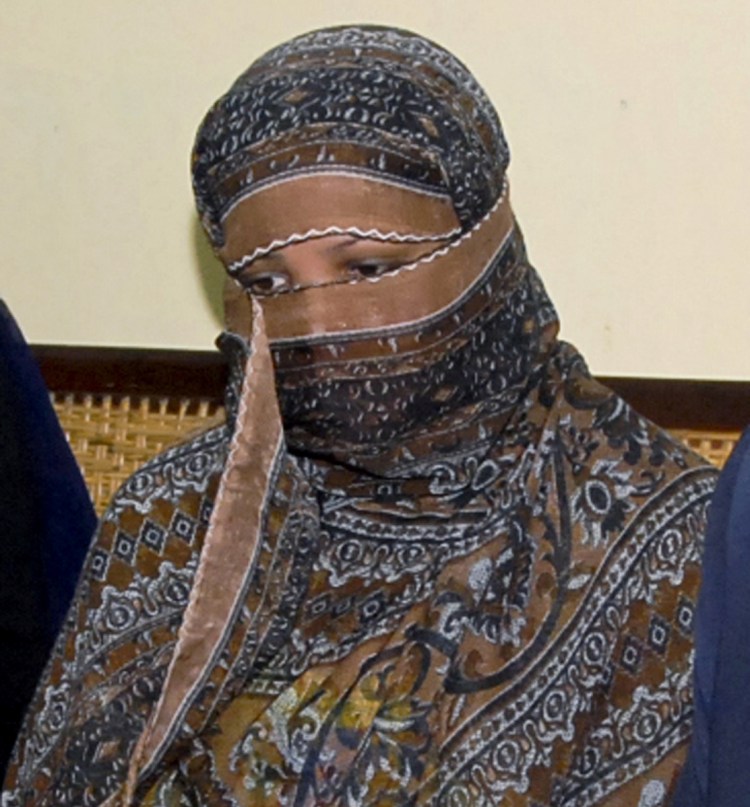ISLAMABAD — Pakistan’s top court this week upheld its acquittal of a Christian woman sentenced to death for blasphemy, paving the way for Aasia Bibi to leave the country in a blow to radical Islamists who had demanded her execution.
Following the landmark decision, Bibi will finally be able to join her daughters, who earlier fled to Canada where they have been given asylum.
Bibi’s lawyer, Saiful Malook, who returned to Islamabad after fleeing the country amid death threats, called the decision a victory for Pakistan’s constitution and rule of law.
The three-judge Supreme Court panel “insisted on very strict proofs of blasphemy” and found none, Malook said, expressing hope that Bibi’s acquittal will deter false blasphemy allegations in the future.
Pakistan’s blasphemy law is often used to settle scores or intimidate followers of minority religions, including Shiite Muslims. A charge of insulting Islam can bring the death penalty, and the mere accusation of blasphemy is sometimes enough to whip up vengeful mobs, even if courts acquit defendants. A provincial governor who defended Bibi was shot and killed, as was a government minority minister who dared question the blasphemy law.
From her secret location, Bibi watched the decision reported live on local television, according to a friend who spoke to her as it was being announced. Bibi’s first thoughts were for her daughters, the friend said, speaking on condition of anonymity.
“I am really grateful to everybody. Now after nine years it is confirmed that I am free and I will be going to hug my daughters,” he quoted Bibi as saying.
Pakistan’s Chief Justice Asif Saeed Khan Khosa led the panel that dismissed the petition asking the court to review its Oct. 31 acquittal of Bibi and to send her back to prison and eventual execution. He said in court that Bibi’s accusers were guilty of perjury and if the case had not been so sensitive, they should have been jailed for life.
“The image of Islam we are showing to the world gives me much grief and sorrow,” Khosa said.
Much of the evidence presented against Bibi was suspicious, and some of it appeared to be fabricated, he said, adding that the cleric who lodged the initial charge of blasphemy gave contradictory statements.
Send questions/comments to the editors.



Success. Please wait for the page to reload. If the page does not reload within 5 seconds, please refresh the page.
Enter your email and password to access comments.
Hi, to comment on stories you must . This profile is in addition to your subscription and website login.
Already have a commenting profile? .
Invalid username/password.
Please check your email to confirm and complete your registration.
Only subscribers are eligible to post comments. Please subscribe or login first for digital access. Here’s why.
Use the form below to reset your password. When you've submitted your account email, we will send an email with a reset code.